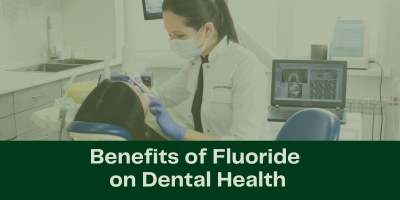
There is some debate on the pros and cons of fluoride on your teeth. In this article, let’s take a look at both sides and let you come to your own conclusions.
What is fluoride?
Fluoride is a mineral that is found in nature when salt interacts with rocks and soils. It’s also a naturally occurring mineral in the human body and that is attributed to strength in our bones and teeth.
A small, safe amount of fluoride is often added to water as a public health measure to help prevent tooth decay. It is also found in toothpaste and mouthwash for the same reason.
Benefits of fluoride
Naturally occurring fluoride in your body helps to keep your teeth strong.
The bacteria in our mouth break down food and create acids that can lead to demineralization; or the weakening of tooth enamel which leads to potential cavities.
Fluoride, or what some call nature’s cavity fighter, can help to:
- remineralize weakened enamel,
- prevent the growth of harmful bacteria in your mouth,
- slow down enamel mineral loss;
- and even reverse early signs of decay.
Disadvantages of fluoride
Like most things, if you somehow ingest too much fluoride, you may experience staining/brown spots on your teeth. This is more likely if you drink a lot of well water due to the naturally higher rates of fluoride.
In very unlikely cases, you could experience nausea, diarrhea, and more severe illness if you were to overdose on fluoride supplements. (Please note: if you choose to use supplements, make sure to consult your doctor and/or pharmacist and keep supplements away from children.)
So, is fluoride good or bad for your teeth? Well, science clearly shows us there are benefits, and perhaps they outweigh the disadvantages.
If you have any questions/concerns about fluoride or anything else concerning your dental health, please don’t hesitate to give us a call at (617) 332-2872. And if you’re due for your 6-month checkup, you can request an appointment here:





